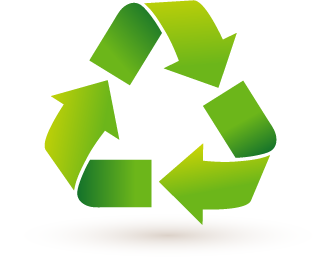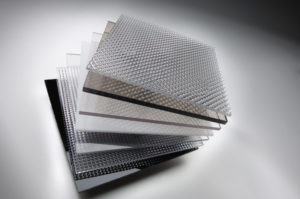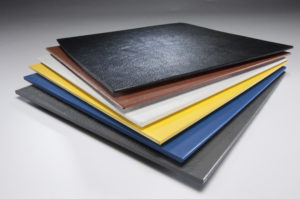Plastic recycling offers a wide array of benefits for communities. It’s not just about protecting the environment, though the process can dramatically impact the carbon footprint of plastic fabricators and manufacturing companies. It can also help companies reduce costs and create high quality products for end users.
If you want to learn more about the process and benefits of plastic recycling, or start integrating the concept into your own operations, here’s a guide.

How Is Plastic Recycled?
Plastic can be recycled using mechanical or chemical means. In mechanical recycling, the material is sorted into categories, cleaned, cut into small pieces, and then melted so it can then be formed into new raw materials with the same basic properties. In chemical recycling, the materials are broken down even further into basic components that can then be used to create new polymers.
Chemical recycling is a more involved process, while mechanical recycling can dramatically cut down on the energy and raw materials required to produce new plastic materials. However, both provide plenty of benefits for plastic companies, consumers, and communities as a whole. The type of recycling used generally depends on the type of plastic material that needs to be processed, as well as the condition of the materials in question. Generally, plastics fabricators only need to worry about sorting plastics that are recyclable from other materials and then send them to a facility that can sort and process them as needed.
Positive Effects of Plastic Recycling
The environmental benefits of plastic recycling are undeniable. When you recycle old materials, you prevent those unused items from ending up in landfills. Not only does this reduce waste, but it also cuts down on air pollution since many scraps and materials in landfills end up in incinerators — and plastics and other materials often emit greenhouse gasses when burned.
Recycling also reduces the need for new raw materials in plastic production and cuts down on energy usage, since more output is usually required during the initial manufacturing process than during recycling. These factors can help communities conserve finite resources and cut down on greenhouse gas emissions from power sources.
While the environmental factors are the most important reasons to recycle, there are also some practical benefits for plastics fabricators and consumers as well. For example, the ability to cut down on new raw materials and energy use can help plastics companies reduce production costs significantly over time. This has a positive impact on companies in the plastics industry and the huge array of businesses and consumers that utilize plastics on a regular basis. Plastic recycling allows them to still enjoy the same quality materials that they would get with products made using brand new plastics. But they can often get them for lower prices and without worrying about the potential negative impact on the environment.
Additionally, some plastics can even be recycled multiple times without breaking down or losing their important characteristics. So recycling those items can have an even greater impact, both on the environment and on operating costs for plastic companies.
How You Can Support Your Community With Plastic Recycling
Plastic companies that want to reduce their carbon footprint can start to do so by choosing products made from recycled and recyclable materials, and by taking part in recycling programs to dispose of old or unused plastics or scraps leftover from specific projects. From outdoor signage made using corrugated plastic to rollable digital media, you can easily give new life to those products and materials that you no longer need instead of sending them to a landfill or allowing them to take up space around your facility.
If you’re looking to start recycling your plastic, Polymershapes can help. Our recycling support program helps customers manage waste more effectively and economically, while providing options that are completely customizable to the needs of each business.
Here’s how it works: You start by connecting with your local Polymershapes branch. We have a full nationwide network full of local facilities available to provide recycling and fabrication support. That branch then provides Gaylord containers that you can use for depositing scrap plastics, including polycarbonate, polypropylene, polystyrene, polyethylene, acrylic, ABS, PC/ABS, and PET. Once the containers are full, simply notify your local branch and they’ll pick up the containers from you and bring them to a recycling facility. They’ll also deliver new containers so you can continue collecting materials for recycling without interruption. From there, the scrap you send in is processed and turned into new plastic materials. The whole process is designed to be seamless for users, so you can recycle as much as possible without interrupting your fabrication processes or adding another major task to your team’s to-do list. Local availability varies, please contact your local Polymershapes office.
In addition to providing recycling support, Polymershapes distributes a wide array of plastic products, from sheets, rods, and tubes to film and signage. Our quality materials include polycarbonate, PVC, acrylic, ABS, and polypropylene, among others. We also have a large network of stocking facilities that are conveniently located in communities around the country, so customers always have access to an extensive inventory and prompt, friendly service right in their own backyard. Next-day delivery is even available in some instances. Lastly, we offer a large array of conversion and fabrication services to provide the exact items that customers need for specific projects. These include cut-to-size sheets, film reel conversion, and CNC routing and machining. To take advantage of all these amazing benefits and learn more about our plastic recycling program, get in touch with one of our local distributors today.



